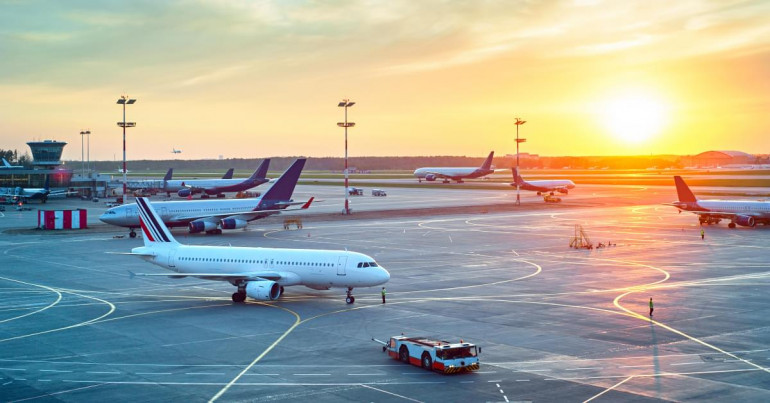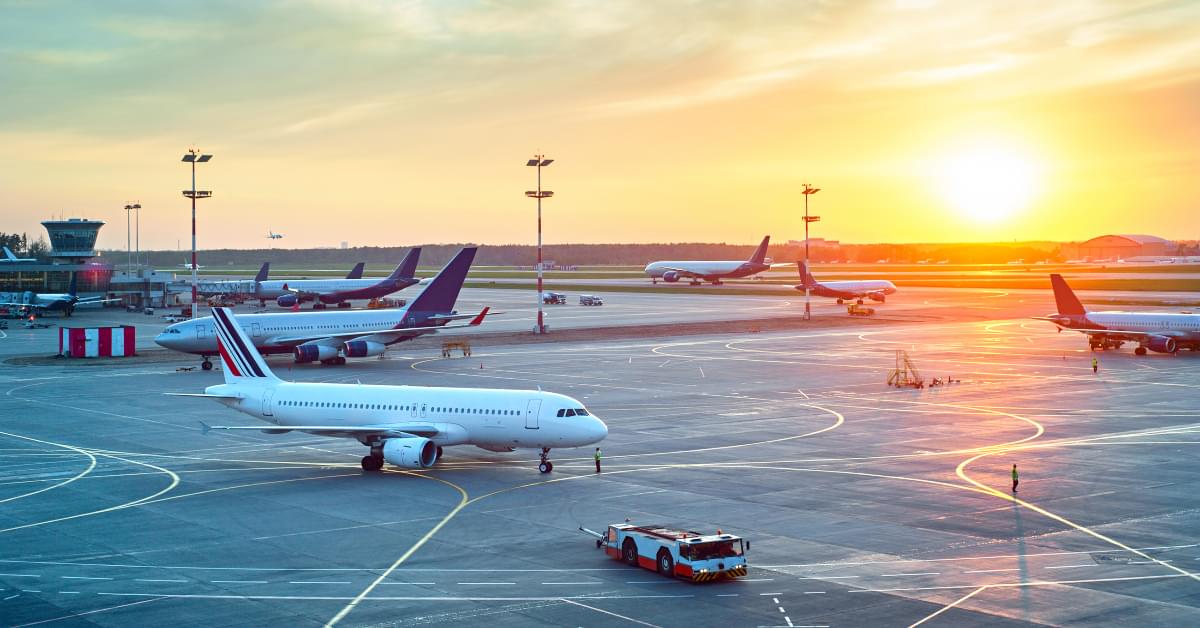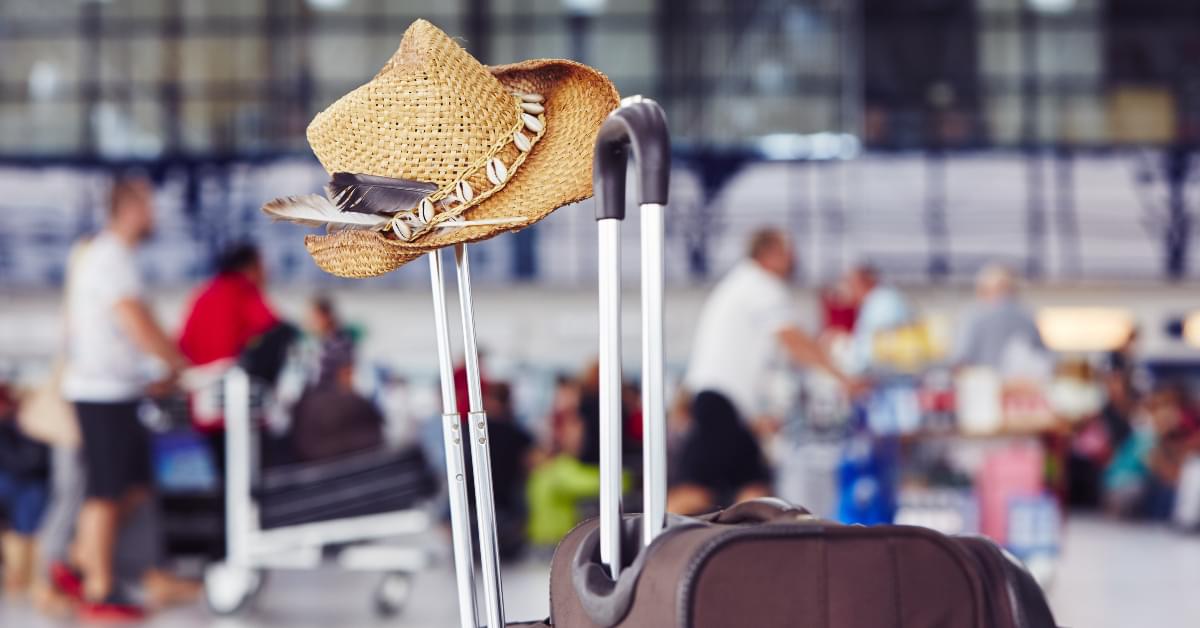
The pandemic hit international travel hard. In the face of a global economic downturn and soaring inflation, UK international travel is still struggling to recover.
Despite pent-up demand for travel and many tourist destinations in the EU removing their international arrival caps, inflation has made travel and accommodation too pricey for most UK vacationers.
Due to cheaper rates, domestic travel still appears to be the top choice for most holiday-goers in 2022. The exception is Ireland, where only 16% of travellers were vacationing locally, and 21% chose to travel internationally.
April of 2022 saw 5.6 million UK residents travel overseas. Recent statistics indicate that these numbers are beginning to plateau. Experts expect that travel budgets for most households may be exhausted by late summer – bad news for travel and hospitality providers in the coming winter seasons.

How inflation drives international travel costs
GBP recently hit a 2-year low against the USD at the time of publishing. This, coupled with the highest rate of inflation since 1982, means Brits are getting less bang for their buck, both at home and when travelling overseas.
The Consumer Price Index (CPI), which measures the strength of the Sterling against the cost of consumer goods, rose by 9.1% in the 12 months leading up to May 2022. Food and non-alcoholic beverages are the main driving factors behind this increase.
The £10 in your pocket will buy you 9.1% less at your local Tesco than it did 12 months ago. That’s less money in the hands of UK households, less saved at the end of each month, and less disposable income to spend on luxury goods and international travel.
UK fiscal policy-makers have increased interest rates to combat inflation. A good idea in the short-term, but it's not known how this might affect consumer and business spending. Property markets are most affected by the increased incentive to save and more cautious money-lending.
In short, throw out your 2021 travel budgets. They’re no good. Expect to pay more.
US figures over the past year indicate some worrying trends that don’t show any signs of abating in the coming months, forcing British holidaymakers to prioritise their spending, taking into account the increased expenditures on basic amenities such as accommodation.
Entertainment
Food prices have continued to increase, with restaurants being the most heavily affected by both local and international inflation. Soaring costs have forced bars, pubs, and other venues across the UK to increase prices in response.
The same holds true for most other hospitality services in major tourist destinations across the EU. Many British tourists now rely on home-cooked meals to cut travel costs.
Similarly, entertainment costs have risen, albeit not as dramatically. Most industries in the EU are facing a strain on supply chains this year due to the Russian/Ukraine conflict.
Most UK travellers opt out of pricey vacation packages and instead distance themselves from major population centres. Great news for smaller towns looking to attract visitors, but not so great for established enterprises in major cities that rely on tourism as a primary source of income.
Accommodation
Destinations across Europe continue to relax travel restrictions as concerns over COVID-19 wither. Skyrocketing energy prices are pushing travel costs higher. The cost of accommodation across the EU has fluctuated wildly in response to unpredictable markets.
According to global hospitality industry analytics provider STR, Average Day Rates (ADR) for hotel rooms in the EU have increased an average of 15% across all major EU holiday destinations this month alone. The exception is France which now projects an average cost of £168 a day, down from the ridiculous ADR of £197.
Predictably, hotels and other accommodation providers in the EU have suffered a 31% drop in visitors year-over-year, while camping grounds, trailer parks, and similar spots report only a 13% decrease from pre-pandemic levels.
Air travel
Eurocontrol’s assessment of EU aviation for the month of June 2022 reports an average of 27,101 daily flights across the EU. The exception is those countries nearest to the Russian/Ukraine conflict, which have seen an almost complete halt to inbound flights.
Air travel seems to be slowly bouncing back, steadily growing each month and currently sitting at 86% of the traffic seen in 2019.
Unsurprisingly, the cost of air travel this month has increased a total of 7.8%, well above the rate of inflation seen in June of 2021 at 1.7%.
Car hire
The cost to rent a vehicle in some of the EU’s most popular holiday destinations more than doubled compared to prices in 2019. Soaring prices largely result from an insatiable post-COVID demand for travel, a looming energy crisis, and recession fears.
Brits in Spain who, in 2019, could rent a car for a little more than €20 a day can now expect to pay at least €60. Italy and Croatia saw car rental prices jump by more than 180%.
The problem is due, in part, to the pandemic – car hire firms order their fleets several months in advance. Having lost out because of the low demand for care hire last year, they hedged their bets.
The result? Not enough staff, not enough cars, and a demand that far outstrips their ability to accommodate.
Why the energy crisis is putting UK residents off the idea of international travel
In response to the Russo-Ukrainian conflict, major western oil importers imposed sanctions that made it difficult to clear Russian oil transactions through the bank.
Oil demand has largely returned to pre-pandemic levels. But now, there’s a deficit in supply – prohibited Russian exports make up 10% of global oil supplies.
Rising gas prices are already changing travel habits, particularly those that commute for business purposes. Staff reimbursed by their employers for using personal vehicles now work at a loss as current policies in the UK and US have failed to account for rapidly increasing fuel prices.
In the UK, the government only updates its reimbursement rates quarterly. The current HMRC reimbursement rates at the time of publication are 45p per mile for the first 10,000 miles and 25p per mile after that. These rates are unchanged from those offered in 2021.
Fuel rates however, have reached an astronomical high of £1.89 per litre.
This has had a massive impact on local travel, but importantly, international travel too. It’s not just the UK that’s affected by the lack of fuel. Prices have taken a chunk out of the take-home pay of most taxi drivers. Many services in the UK and EU have already increased their pricing.

How to effectively budget for international travel
Despite current costs, most are unwilling to sacrifice the opportunity for a bit of travel. Not surprising given that it’s the first time in years that many countries have abandoned travel restrictions.
You may have a bloated travel budget if you haven't travelled in some time. This doesn't mean you should take the first deal you see. If you’d like to see the world and not break the bank, keep these tips in mind when booking your next holiday:
Pick the right time
Avoid travelling in peak season. This may have been a general guideline in the past, but given the current cost of travel, it's the new golden rule of travel.
It may be difficult for families who have to follow a school holiday schedule, but solo travellers and small groups can find great deals if willing to travel in the less-popular winter months.
Book early
If you have the luxury of planning your vacation several months in advance, most air carriers will offer greatly discounted rates for flights booked well before your travels. Try booking 7 to 9 months in advance to be safe.
So long as you’re sure you’re booking with a reputable, reliable air carrier, grab it if you see a cheap flight. They're only going to get more expensive as time goes by.
Go through a travel agent
You can easily book your flights and accommodation online, so it's not surprising that most holiday goers never think to contact a travel agent.
Travel agents help you find cheaper flights than those typically advertised online. They can also help you find great package deals on accommodation, local transport and even attraction tickets.
Don’t get caught out by unfavourable exchange rates
Use a credit card that has no foreign transaction fees. This can save you 7.1% relative to the average bank or credit union. When paying, always pay in local currency. Exchange rates offered by local businesses probably won’t be as favourable as what your credit card issuer will charge.
You can use CurrencyTransfer for your international money transfers – we offer an efficient service for your personal transfer needs. Don’t hesitate to contact our friendly team if you have any further questions.
Matthew Swaile
Copywriter
Florence Couëdel
Editor



